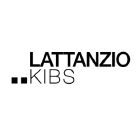WORKING WITH DG ECHO AS AN NGO PARTNER | 2021 - 2027
IMPLEMENTING PARTNERS
A DG ECHO Certified partner may entrust tasks forming part of the action on a non-profit basis to one or several implementing partners (IPs).
Implementing partners are non-certified entities, such as: entities affiliated to the grant-holder or with which the latter is affiliated; local entities; non-local entities (See e-Single Form Guidelines on Section 10.6).
The DG ECHO Certified partner (grant beneficiary), must ensure that the conditions applicable under the Model Grant Agreement (MGA) are also applicable to implementing partners (Article 9.4 MGA) when implementing a DG ECHO funded Action.
Moreover, as described in Annex 5 of the MGA, the beneficiary(-ies) must ensure that the implementing partner(s):
- comply with the same rules, standards and procedures for implementing the financial support;
- ensure effective and reliable reporting, covering the activities implemented, information on indicators, as well as the legality and regularity of the expenditure claimed;
- provide that the bodies mentioned in Article 25 (e.g. granting authority, OLAF, Court of Auditors (ECA), etc.) can exercise their rights also towards the final recipients;
- ensure the respect of EU restrictive measures set out in Annex 5 (including towards the final recipients) and inform the beneficiary in case of issue.
Where the implementing partners are part of beneficiary networks, federations or confederations which regularly cooperate with them (or with their implementing partners), the beneficiaries must moreover ensure that the costs charged to the action are limited to the costs actually incurred and that the partners comply with the principle of sound financial management and keep records on their costs.
Since DG ECHO-funded Action must be carried out in line with the highest ethical standards and respect of EU values (such as respect for human dignity, freedom, democracy, equality, the rule of law and human rights, including the rights of minorities) – the Implementing Partner must also be able to uphold these standards and values in both its recruitment and employment policies and in the implementation of its activities. Implementing Partners must comply with the applicable national law on taxes, labour and social security.
In the context of EU humanitarian aid implementation, Implementing Partners must also maintain respect of fundamental humanitarian principles. This is of particular importance when the implementing partner has ties with the local or national authorities since such ties, while not prohibited, should never impede the impartial and neutral implementation of the activities entrusted to the Implementing Partner.
IMPLEMENTING PARTNERS and CONTRACTORS
Sometimes, it can be difficult to draw the line differentiating a contractor from an implementing partner. The following table indicates the main differences between these two actors.
IMPLEMENTING PARTNERS in THE e-SINGLE FORM
The decision to entrust tasks to implementing partners should be mentioned in section 10.6 of the e-Single Form (e-SF).
In this Section, the beneficiary must list all implementing partners and indicate (amongst others) the part of the action budget to be allocated to them .
According to Article 204 of the Financial Regulation, financial support can only exceed EUR 60 000 if the objectives of the action would otherwise be impossible or excessively difficult to achieve.
In case the budget allocated per implementing partner exceeds EUR 60 000, the beneficiary must provide a justification for this transfer: standard justifications are provided in the HIP technical annexes as well as in the e-SF guidelines.
Such situations can occur in cases where:
- only a limited number of non-profit non-governmental organisations have the capacity, skills or expertise to contribute to the implementation of the action;
- only a limited number of non-profit non-governmental organisations are established in the country of operation or in the region(s) where the action takes place;
- the partner works in a network setting e.g. through families or confederations and rely on other partners of the network with a view to minimising costs and avoiding duplications.
The beneficiary is able to add or remove implementing partners unilaterally in the e-Single Form (at RQ, MR stages only), as this is considered a non-essential operational change. However, if the beneficiary considers that there would be significant operational consequences from removing an IP, or if the beneficiary is aware that adding an IP may raise problems in terms of compliance with the humanitarian principles, it is obliged to contact DG ECHO in line with its obligations under the Model Grant Agreement.
At the latest at Final Report stage, the beneficiary must ensure that exhaustive information on all IPs are included in the e-SF before submitting the Final Report (See e-Single Form Guidelines).
Note that, it is not possible to select DG ECHO Certified Partners as implementing partners. If a partner wants to cooperate with other certified partners, it is possible under a multi-beneficiary grant agreement signed by the Coordinator with the Commission (DG ECHO) for the implementation of the action, while the co-beneficiary(ies) will accede to the grant by signing the Accession form (Annex III to the MGA) as per article 40.1 MGA (See FAQ 62).
In accordance with article 7 of the Model Grant Agreement, in order to ensure that the Action is implemented properly, the beneficiaries must have internal arrangement regarding their operation and cooperation (See FAQ 75).
REFERENCE, DOCUMENTS & USEFUL LINKS
EU HUMANITARIAN PARTNERSHIP CERTIFICATE GUIDANCE, SEC. 3.2 2021
AGA Annex 5 – SPECIFIC RULES FOR FINANCIAL SUPPORT TO THIRD PARTIES
e-SINGLE FORM GUIDELINES, SECTION 10.6





